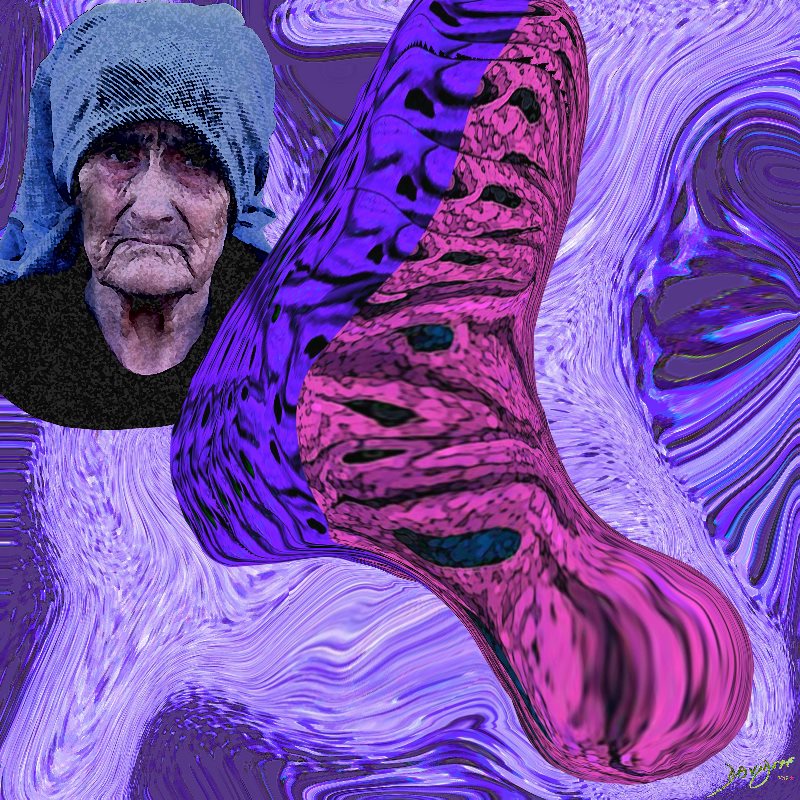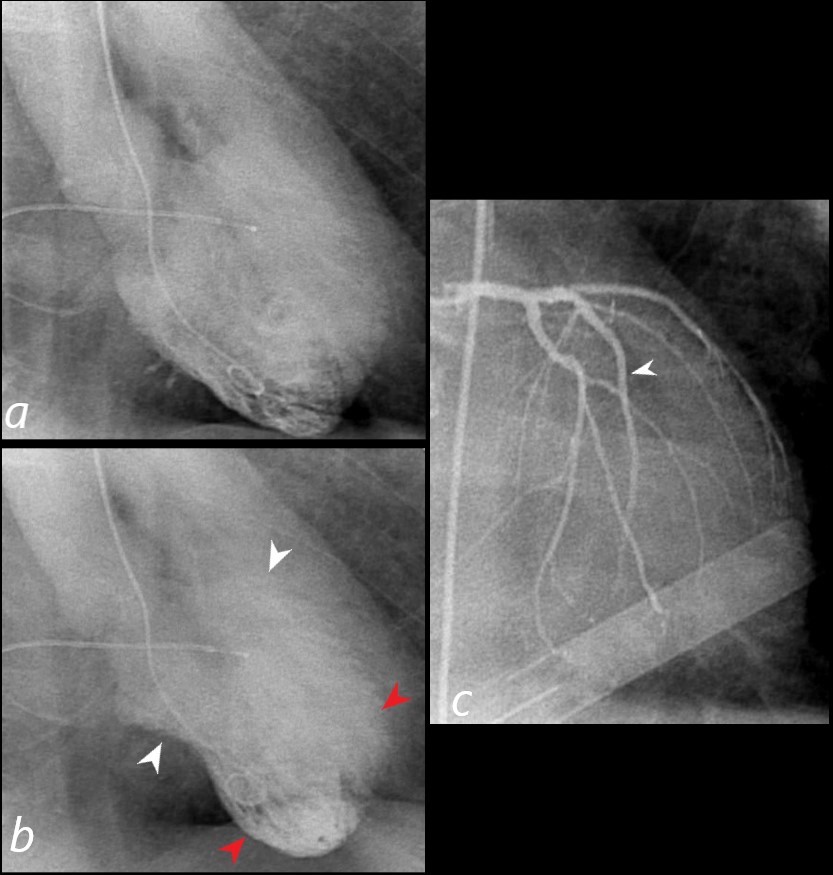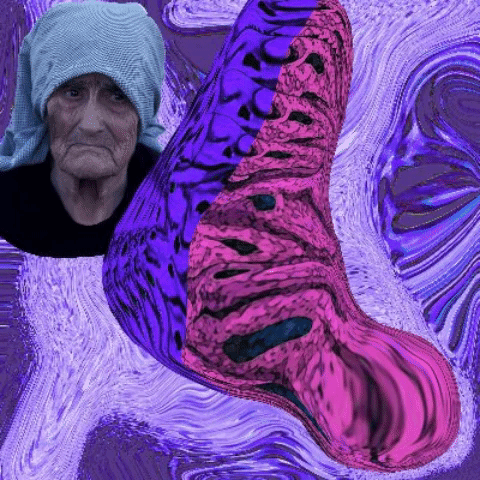-

TAKOTSUBO HEART
Takotsubo Heart – aka Broken heart Syndrome – A transient apical dyssynergy due to extreme emotional and or physical stress
Ashley Davidoff MD - Takotsubo Cardiomyopathy (etym Japanese Octopus Trap (aka Transient apical ballooning syndrome, apical ballooning cardiomyopathy, stress-induced cardiomyopathy, Gebrochenes-Herz-Syndrom, broken-heart syndrome
-
is a
-
- sudden , transient regional systolic functional abnormality of the heart that mimics AMI
-
-
Caused by
-
- severe emotional distress and thus sudden massive surge of catecholamines such as adrenaline and norepinephrine
- Theories
- vasoconstriction resulting in transient ischemia
- microvascular dysfunction
- midventricular obstruction with apical stunning
- catecholamine-induced myocyte injury
- Pheochromocytoma
-
-
Resulting in weakening and malfunction
- Clinical
- Often post menopausal women
- Most common presenting symptom is
- acute substernal chest pain,
- some have dyspnea
- Other
- CHF
- tachyarrhythmias
- cardiogenic shock 10%
- Other
- Clinical
-
- Acute Coronary Syndrome
- EKG
- S-T segment elevation
- Lab
- Troponin elevated in most patients
- EKG
- Acute Coronary Syndrome
-
EchoCath
- Neg coronaries
- LV gram
- base of the left ventricle is contracting normally or is hyperkinetic while the remainder of the left ventricle is akinetic or dyskinetic.
- May have midsystolic LVOT obstruction with mitral regurgitation
-
Pathology
- consistent with catecholamine toxicity with
- interstitial fibrosis
- cellular infiltration
- no evidence of myocarditis
- consistent with catecholamine toxicity with
Complications
-
- acute congestive heart failure,
- lethal abnormal heart rhythms,
- rupture of the heart wall.
- Death 1.8%
- Natural History
- Most of the abnormalities in systolic function resolve in
- one to four weeks, and
- recover
- within two months.
- recover
- one to four weeks, and
Images

74-year-old male with type 2 diabetes, CAD s/p stent 6 years prior, hypertension and hypercholesterolemia, fell at home and presents to the ER.


Left ventriculography during systole showing apical ballooning akinesis with basal hyperkinesis in a characteristic takotsubo ventricle
Wikipedia Courtesy Tara C Gangadhar, Elisabeth Von der Lohe, Stephen G Sawada and Paul R Helft

Left ventriculogram during systole displaying the characteristic apical ballooning with apical motionlessness in a patient with takotsubo cardiomyopathy
Courtesy Olagoke Akinwande, Yasmin Hamirani and Ashok Chopra

Ashley Davidoff MD
From Wikipedia

Courtesy Wiki Commons
References and Links
Ramaraj R, et al . Levels of troponin release can aid in the early exclusion of stress-induced (takotsubo) cardiomyopathy. Exp Clin Cardiol. 2009 Spring;14(1):6-8. PMID: 19492036; PMCID: PMC2689087.
- TCV
- Cases
